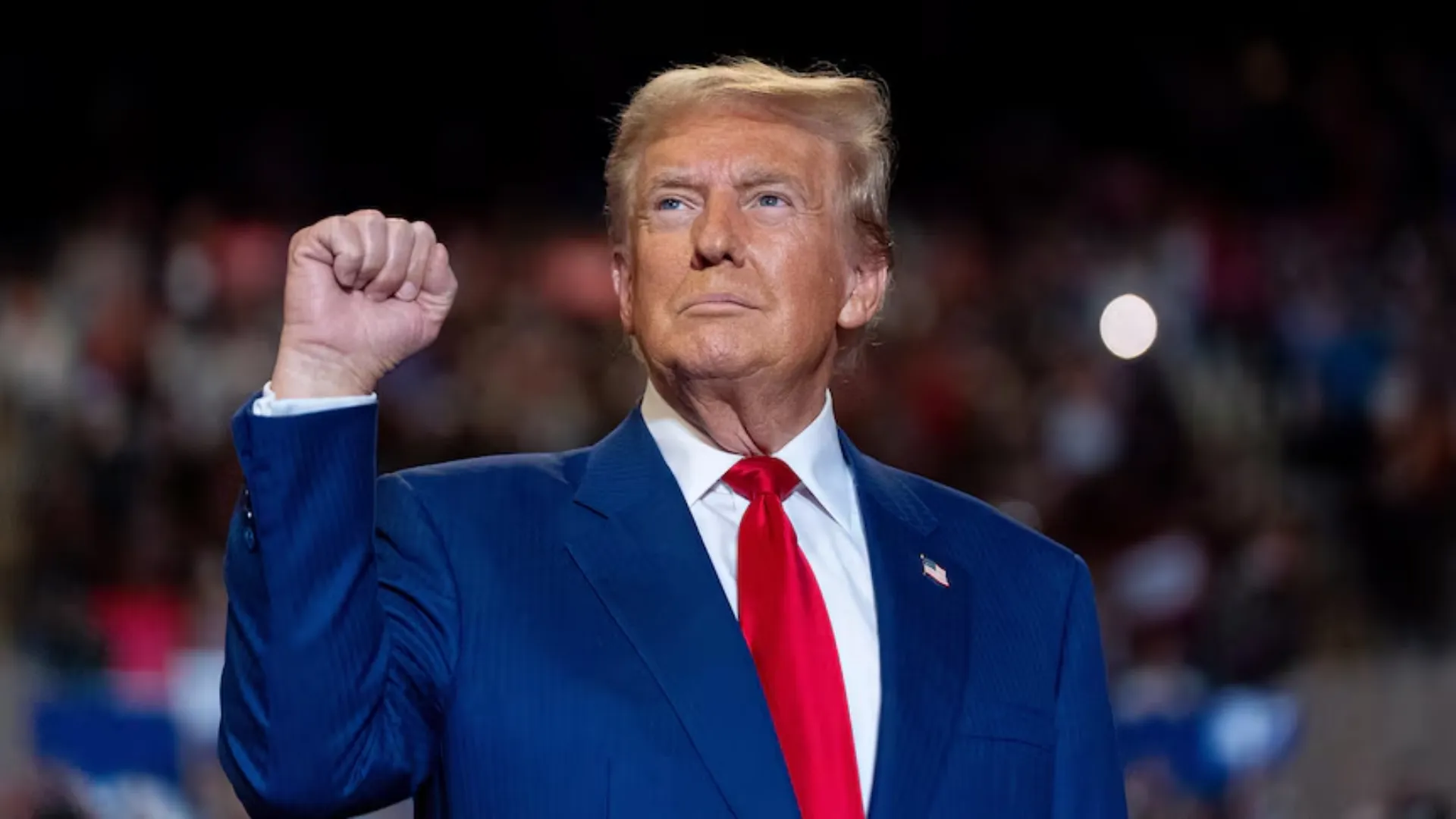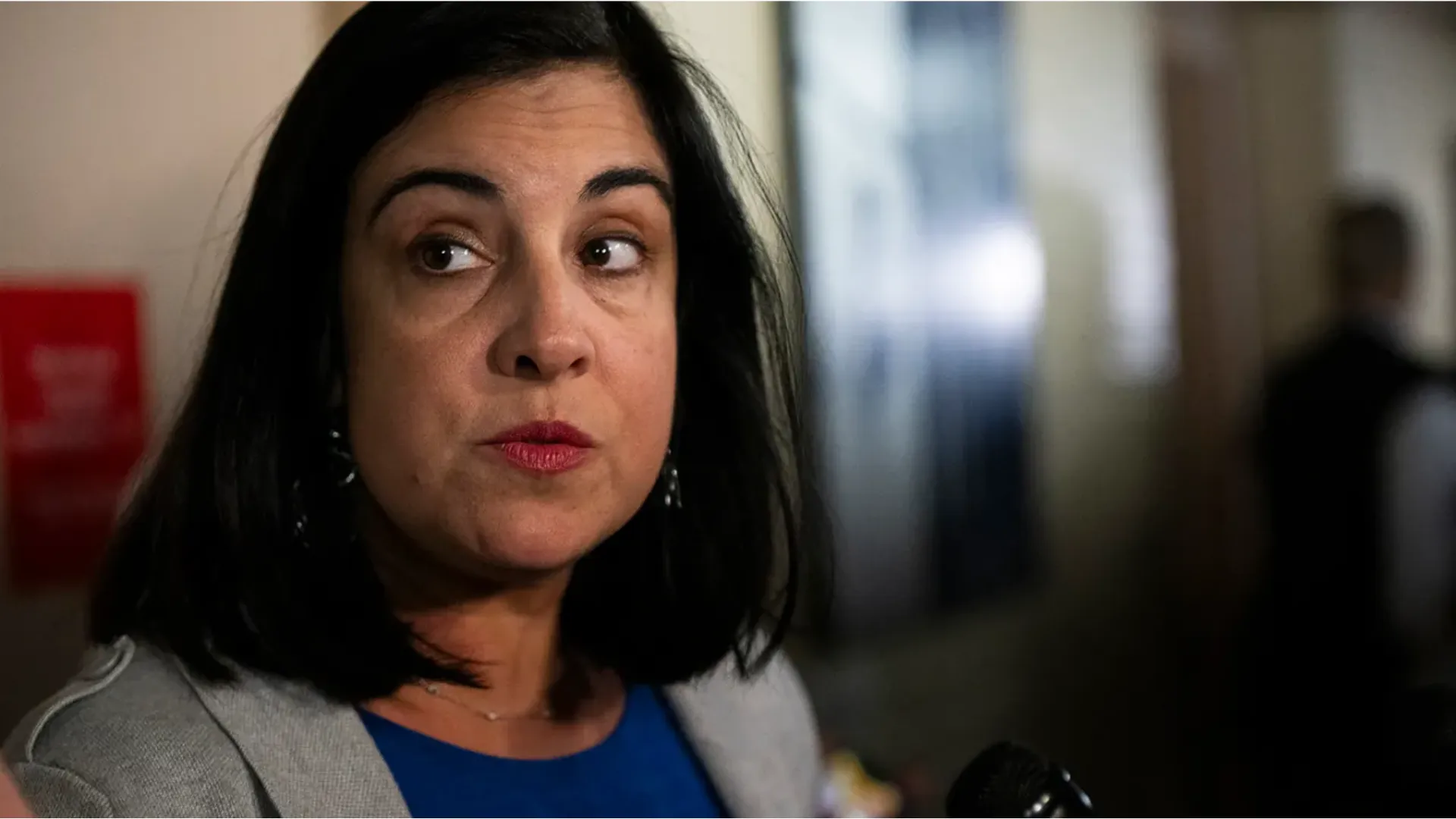
In a dramatic development that has reignited concerns about the Trump administration’s approach to immigration and due process, the Department of Justice (DOJ) is openly defying a court order to return Kilmar Abrego Garcia, a Maryland resident who was wrongfully deported to El Salvador last month.
The case, which has already made its way through the legal system, including the U.S. Supreme Court, underscores the ongoing battle between the executive branch and the judicial branch over the limits of presidential power, the rights of immigrants, and the protections afforded by the Constitution.
Abrego Garcia, a 29-year-old legal immigrant with a work permit, was taken into custody by Immigration and Customs Enforcement (ICE) during what he believed to be a routine traffic stop.
Despite his legal status and personal ties to the United States, including an American wife and child, he was deported due to an “administrative error” by ICE. The Trump administration’s handling of the case has sparked outrage, particularly after President Trump himself weighed in, making inflammatory remarks about Abrego Garcia’s status and the role of the courts.
At the heart of the controversy is a court order from Maryland District Court Judge Paula Xinis, who ruled that Abrego Garcia must be returned to the U.S. after the DOJ admitted the deportation was a mistake.
The court set a Friday morning deadline for the administration to provide details about Abrego Garcia’s location and the steps to facilitate his return, but government attorneys argued that the deadline was “impracticable” and requested additional time.
This move by the DOJ has raised serious concerns about the administration’s willingness to comply with court orders, particularly those that conflict with its immigration agenda.
Kilmar Abrego Garcia’s case begins with an administrative error by Immigration and Customs Enforcement (ICE), which resulted in his wrongful deportation. A legal Salvadoran migrant, Abrego Garcia arrived in the United States at 16, seeking asylum after his family faced extortion and threats of violence from a rival gang of the notorious MS-13 cartel.
His family’s pupusa business was being targeted, and Abrego Garcia claimed in court that the gang pressured him to join them. When he refused, they escalated the threats.
Abrego Garcia filed for asylum in 2019, but his application was denied because the court ruled that it was submitted too long after his entry into the U.S. Despite this, an immigration judge ruled that he could not be deported to El Salvador because he feared persecution if returned.
This ruling played a pivotal role in the lawsuit filed by his attorneys and family members, who argued that the deportation violated both due process and international human rights standards.
The court’s ruling to return Abrego Garcia to the U.S. came after a series of legal challenges and appeals. Despite the clear Supreme Court ruling that Trump must facilitate Abrego Garcia’s return, the DOJ has remained defiant.
The DOJ’s position that the 90-day deadline was “impracticable” has raised alarms among legal experts and elected officials, particularly those concerned with the administration’s disregard for the judiciary.
The legal implications of this case are profound. Judge Xinis, a former Obama appointee, made it clear that the Supreme Court’s ruling was unequivocal, stating: “The Supreme Court has spoken quite clearly, and yet I can’t get an answer.”
This defiance of the court order by the Trump administration’s DOJ is a striking example of executive overreach and sets a dangerous precedent for the future of the U.S. legal system.
The administration has repeatedly found ways to bypass judicial oversight, undermining checks and balances and raising concerns about the abuse of executive power.
The case has drawn intense political and public attention, particularly after President Trump’s personal involvement in the matter. In an angry post on Truth Social, Trump disparaged the court’s decision and expressed frustration over the ruling, stating: “We have judges that are out of control that say, ‘Oh bring him back, bring him back.’ We don’t want him back.”
Trump’s rhetoric plays into a broader political narrative where the courts, especially judges appointed by Democrats, are portrayed as adversaries to his administration. The president’s comments align with his long-standing criticism of the judiciary, particularly when the courts have ruled against his immigration policies.
For some, this rhetoric has raised concerns about Trump’s willingness to challenge not only court orders but the rule of law itself. If Trump continues to defy judicial orders — especially in matters of immigration — it could erode trust in the fairness of the judicial system and raise significant concerns about the balance of power between the executive and the judicial branches.
The case of Kilmar Abrego Garcia highlights a larger, deeply troubling trend in Trump’s immigration policies: the erosion of due process for individuals who find themselves caught in the gears of a broken immigration system.
For many immigrants and advocates, the issue is not just about Abrego Garcia’s wrongful deportation but about the widespread lack of accountability in immigration enforcement.
Rep. Jamie Raskin (D-MD), a leading critic of Trump’s immigration policies, framed the issue as part of a broader attack on constitutional protections. He warned that if the Trump administration were allowed to continue bypassing due process, it could set a dangerous precedent for future actions.
Raskin’s fears are rooted in the belief that if Trump gets away with bypassing the courts in this case, it could embolden future administrations to circumvent judicial oversight altogether.
Raskin’s concerns reflect a deeper anxiety about authoritarianism and executive overreach in the Trump administration. By ignoring court orders and refusing to comply with the law, the administration is not only undermining due process but also violating basic principles of fairness and justice.
The wrongful deportation of Abrego Garcia is just one example of the devastating consequences of Trump’s hardline immigration policies, which have been characterized by blatant disregard for due process and human rights.
Under Trump’s administration, immigrant rights groups have repeatedly raised alarms about the treatment of migrants and refugees, especially those from Central America.
The Trump administration’s focus on “illegality” and immigration restrictions has created a political environment where human rights abuses are often brushed aside in favor of political expediency.
The case of Abrego Garcia, a legal immigrant who was wrongfully deported due to bureaucratic error, serves as a stark reminder of the consequences of these policies for families and communities across the United States.
The role of the judiciary in this case cannot be overstated. It was the courts that ruled in favor of Abrego Garcia’s return to the U.S. after the Trump administration’s mistake, and it will be the courts that ultimately determine the limits of executive power in future immigration cases.
The Supreme Court’s involvement in this case and its unanimous ruling that the DOJ must facilitate Garcia’s return underscores the importance of judicial oversight in the age of executive power grabs.
Yet, with Trump’s history of attacking the judiciary, it is clear that the courts will continue to play a pivotal role in either curbing or reinforcing the administration’s policies. If Trump is able to defy court orders and continue his immigration policies without judicial intervention, it will set a dangerous precedent for future administrations.
The wrongful deportation of Kilmar Abrego Garcia is a critical moment in the Trump administration’s battle against the judiciary and the rule of law. The administration’s defiance of court orders, particularly the failure to comply with the Supreme Court’s directive, underscores a dangerous trend: a government that believes it can act above the law.

For immigrants like Abrego Garcia, whose lives are at the mercy of an often inconsistent and unjust immigration system, the administration’s defiance is a sobering reminder of the power imbalance at play.
If this case is not resolved with fairness and justice, it will send a chilling message: that those in power can act with impunity, disregarding both the Constitution and the rights of individuals.
As the legal battle over Abrego Garcia’s return continues, the question remains: What will happen when the law no longer stands as a check on executive power?
If the Trump administration can continue to defy court orders without consequence, it will set a dangerous precedent for future leaders—and it will erode the very foundation of the democratic system.






